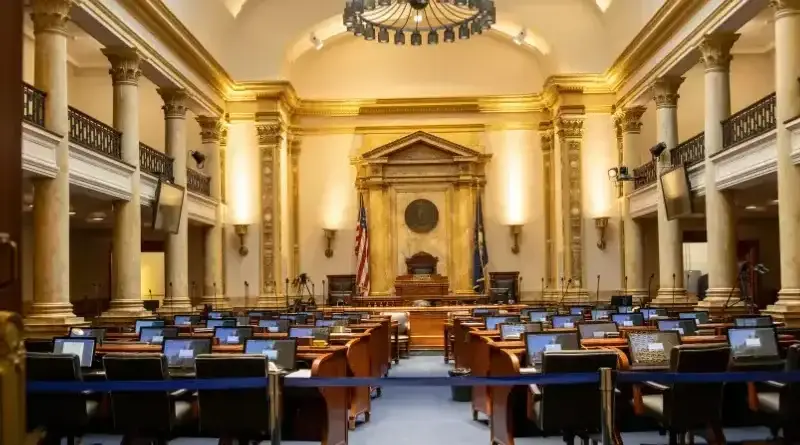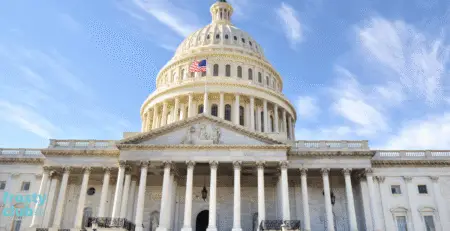September 2025: Alabama THCa Flower Legal Update & Legislative Guide for Retailers
As of September 2025, Alabama retailers dealing in hemp-derived products, including THCa flower, must navigate a complex and rapidly shifting legal landscape. In addition to the proposed Senate Bill 132 (SB132), the recently passed House Bill 445 (HB445) has enacted sweeping changes affecting the sale of hemp-derived cannabinoids — including a ban on smokable hemp products. This update outlines the latest developments, compliance obligations, and alternative legal pathways such as Frosty’s new tea-based program for THCa flower.
Additional Reading: Wholesale THCa Flower in Alabama – Choosing the Best Supplier
Legal Status of THCa Flower in Alabama (September 2025 Update)
Under existing Alabama law, hemp-derived products remain legal provided they contain less than 0.3% delta-9 THC by dry weight, aligning with the 2018 Farm Bill. THCa is non-psychoactive until heated, but recent legislation reflects growing concern over its potential conversion to delta-9 THC when smoked.
In addition to SB132 — which proposes scheduling various hemp cannabinoids — the newly enacted HB445 prohibits the sale and possession of smokable hemp, including pre-rolls and loose flower sold for inhalation.
Key Provisions of HB445 Impacting THCa Flower
- Smokable Hemp Ban: Effective July 1, 2025, retailers may no longer sell or distribute hemp flower intended for combustion or vaporization. Violations may be prosecuted as felonies beginning in 2026.
- Consumable Hemp Still Legal: Non-inhalable products — like edibles, tinctures, beverages, topicals, and tea — remain permitted, provided they meet strict THC per serving limits, packaging rules, and labeling standards.
- ABC Licensing & Oversight: The Alabama ABC Board will regulate and license retailers and manufacturers of consumable hemp. New taxes and licensing requirements are expected to roll out by January 1, 2026.
- THC Potency Limits: Consumable products may contain no more than 10 mg of total THC per serving and 40 mg per container. “Total THC” includes THCa and delta-9 THC combined.
- Marketing & Packaging: All products must be labeled clearly, packaged in child-resistant containers, and may not be marketed in ways that appeal to children.
SB132: Additional Risks for THCa Retailers
- Product Restrictions: SB132 proposes classifying several hemp cannabinoids as controlled substances — potentially including THCa by interpretation. (Source)
- Penalties for Non-Compliance: Fines escalate from $1,500 to $5,000 for repeated violations involving psychoactive cannabinoids sold to minors. A fourth violation could result in license revocation.
- Age Restrictions: Sales are restricted to individuals 21 and older, and products must be displayed out of reach of minors.

Current Compliance Requirements for Retailers
While SB132 remains under debate, and HB445 is now active, all retailers must ensure compliance with the following requirements:
- Licensing: For non-smokable products, licensing by the Alabama ABC Board may be required starting in 2026. Retailers must also maintain local business licenses.
- Product Testing: All consumable hemp products must be tested by approved labs and include a COA verifying total THC (including THCa) is within limits.
- Record-Keeping: Maintain invoices, COAs, batch numbers, and sales logs for at least three years to demonstrate compliance.
Packaging and Labeling Regulations
Updated packaging standards require:
- Child-Resistant and Tamper-Evident Containers: Mandatory for all consumable hemp products.
- Clear Labeling:
- Product name, usage instructions (e.g. steep for tea)
- Net weight and serving size
- QR code linking to COA
- Manufacturer/distributor info
- Warning labels and THC content (total THC)
- Statement: “Not for smoking or inhalation” (for tea-formatted flower)
Recommended Actions for Retailers
- Phase Out Smokable Inventory: Remove pre-rolls and loose flower labeled or marketed for smoking before enforcement escalates.
- Stay Informed: Monitor both SB132 and regulatory actions from the ABC Board regarding testing and licensing.
- Comply with Labeling Rules: Ensure all consumable hemp products meet current standards — especially if you sell edibles, beverages, or flower tea.
Conclusion
While THCa flower remains federally legal when under 0.3% delta-9 THC, Alabama’s updated regulations — particularly HB445 — prohibit its sale in smokable formats. Retailers must pivot toward non-inhalable, compliant alternatives. Frosty Club’s Tea Program offers a lawful, market-ready pathway to continue serving THCa consumers within Alabama’s evolving legal framework.








